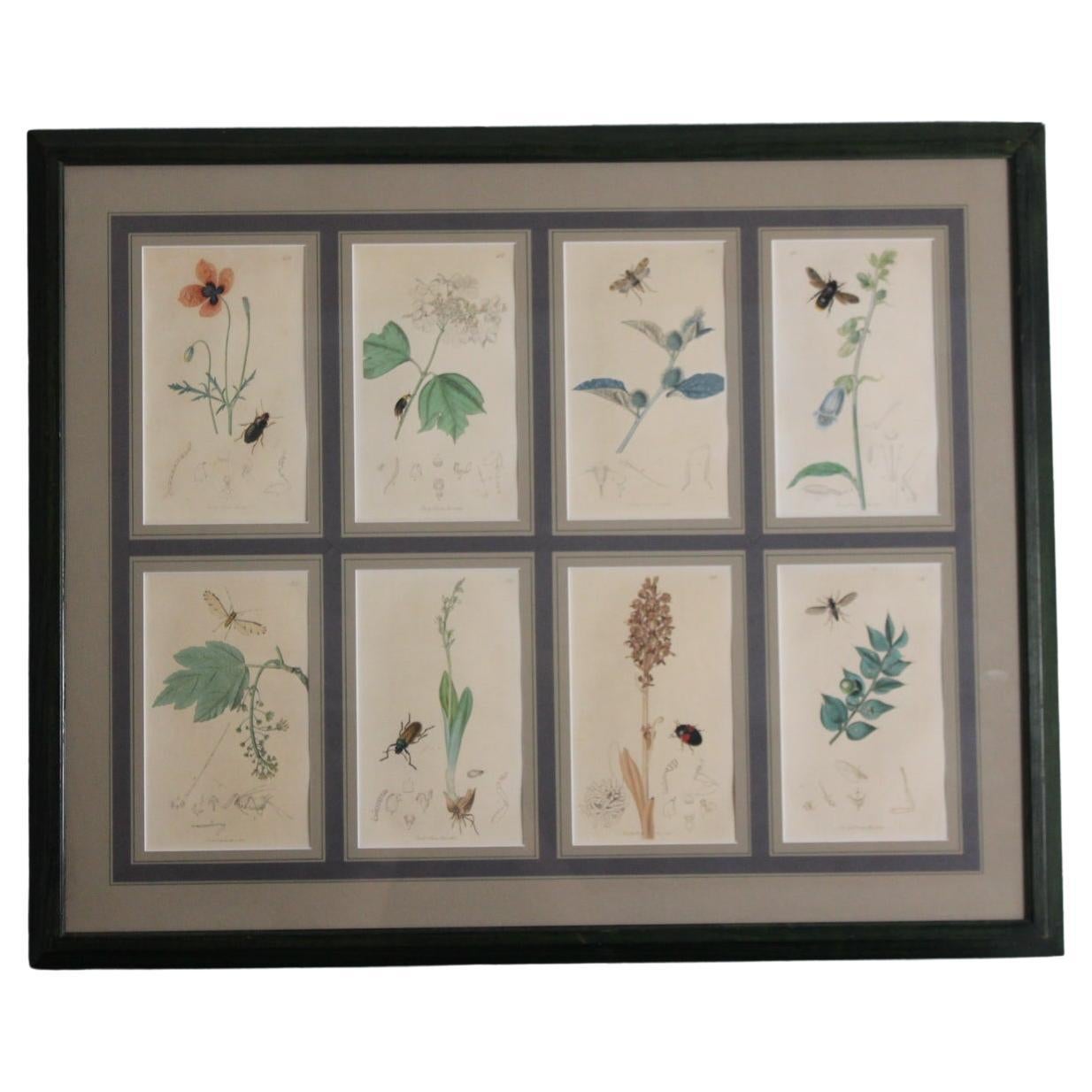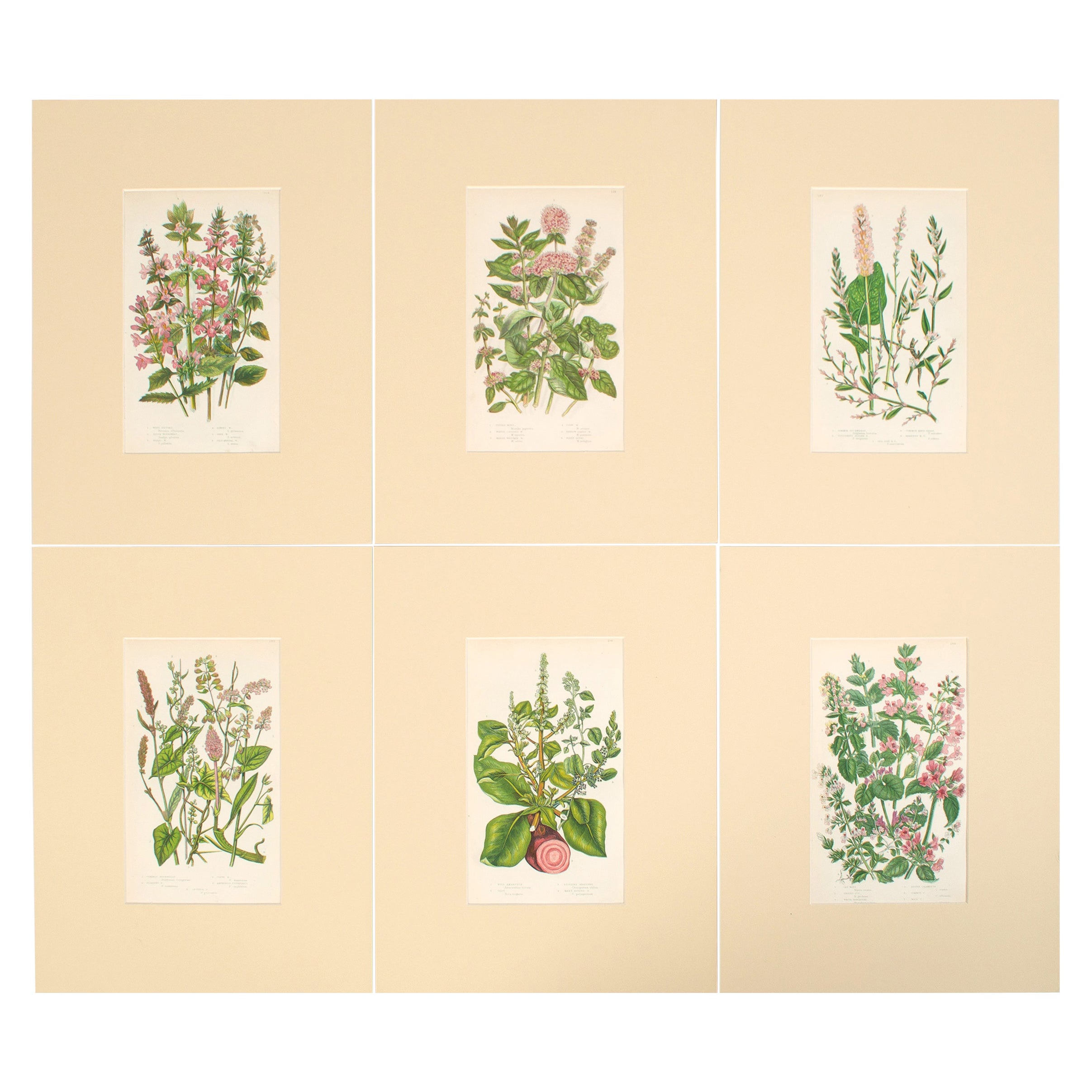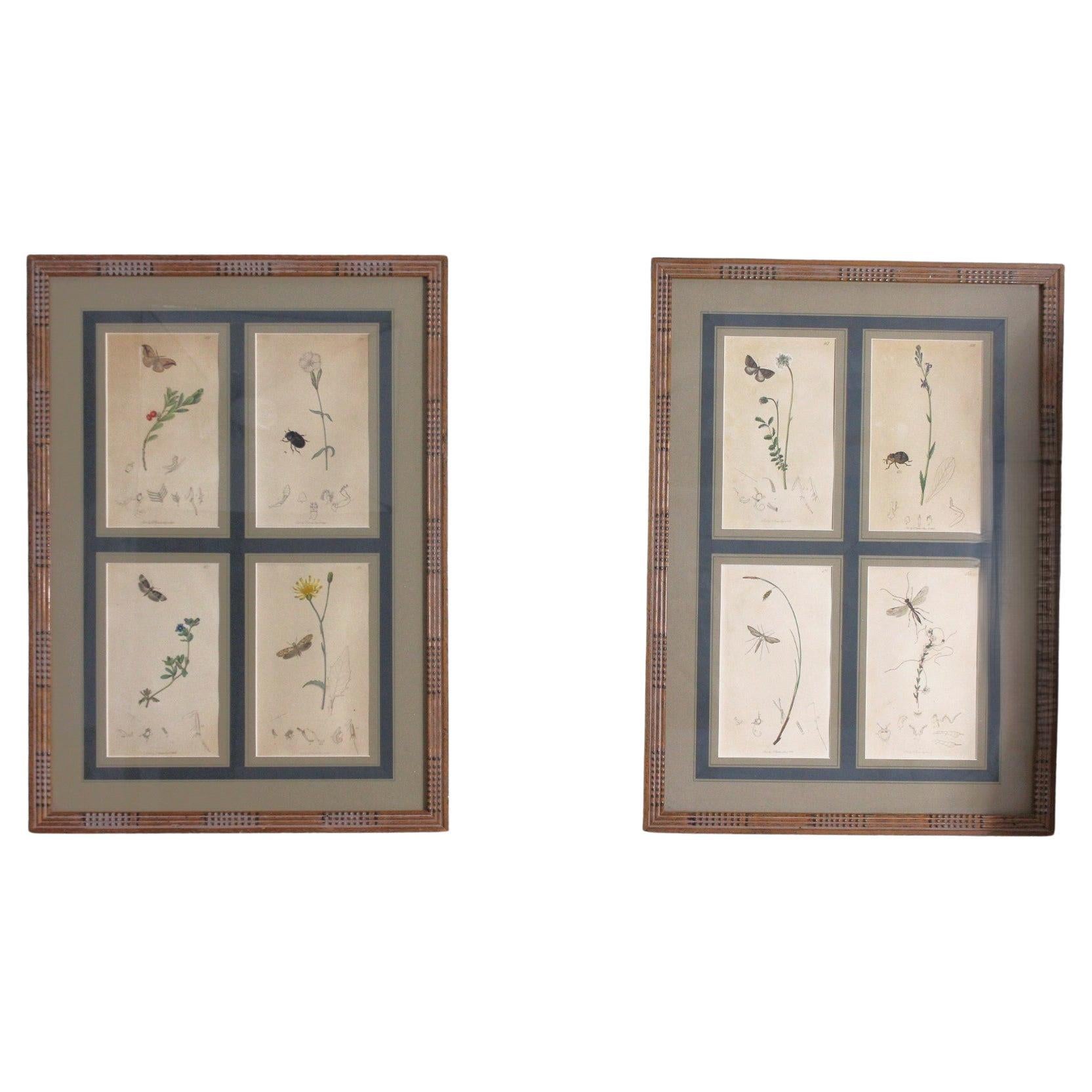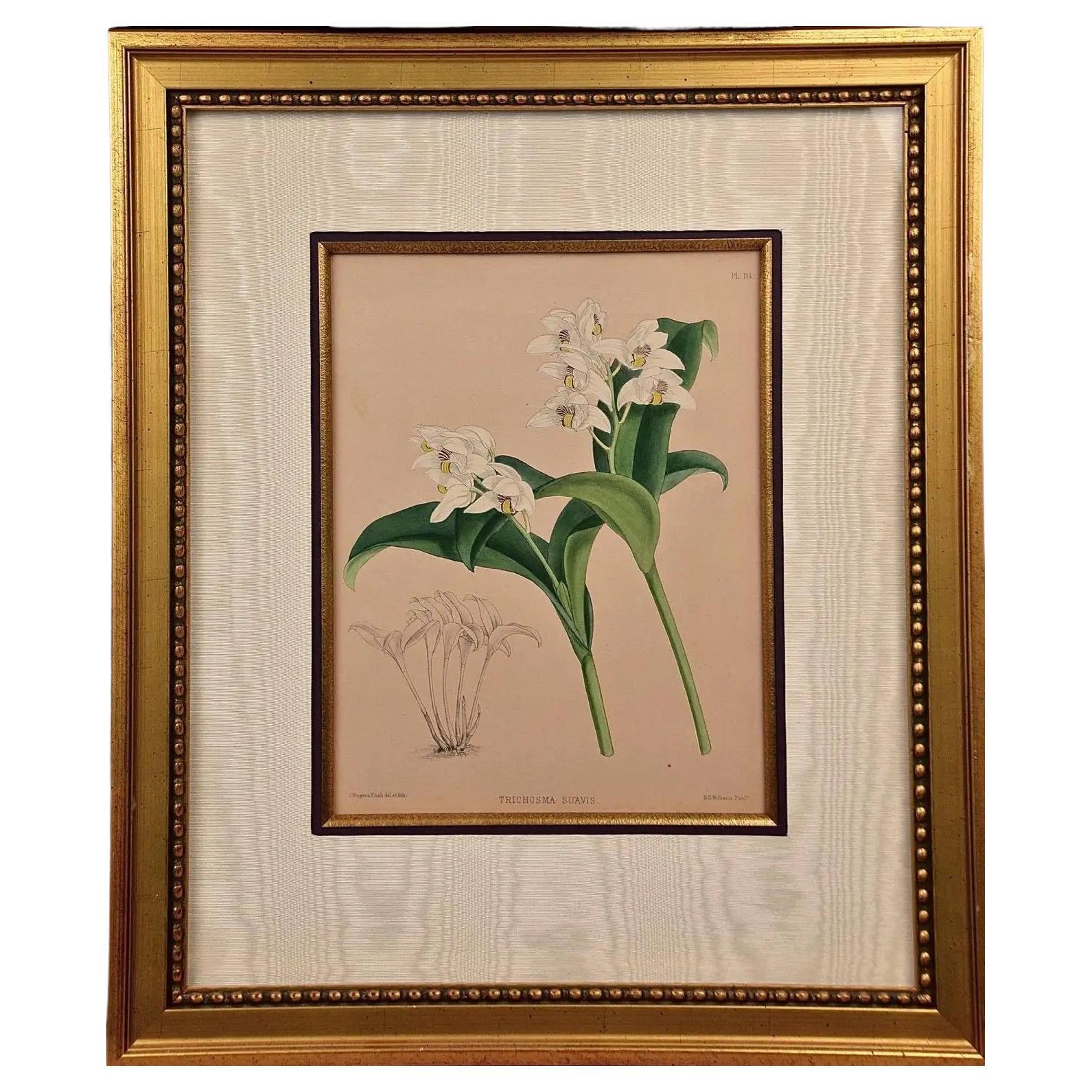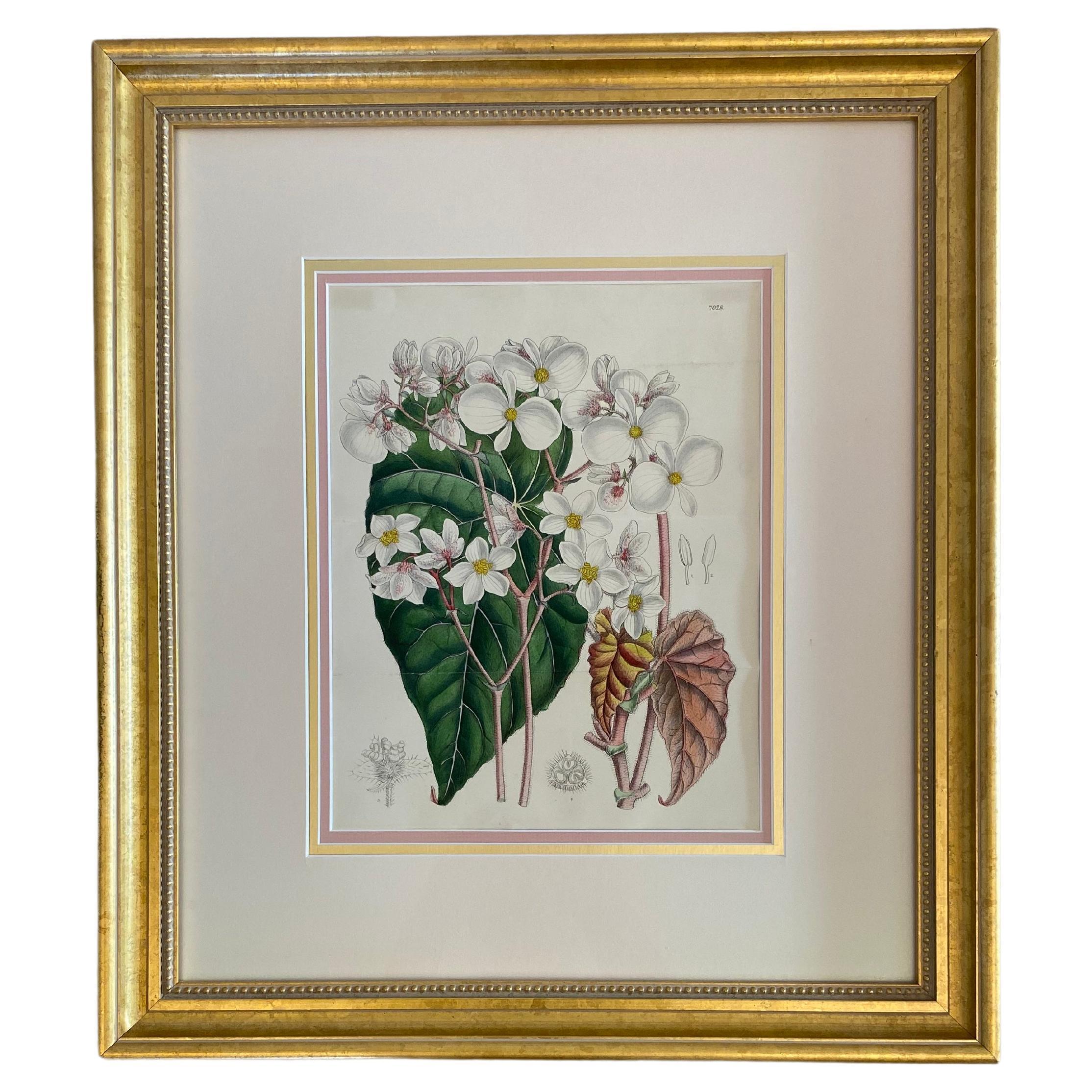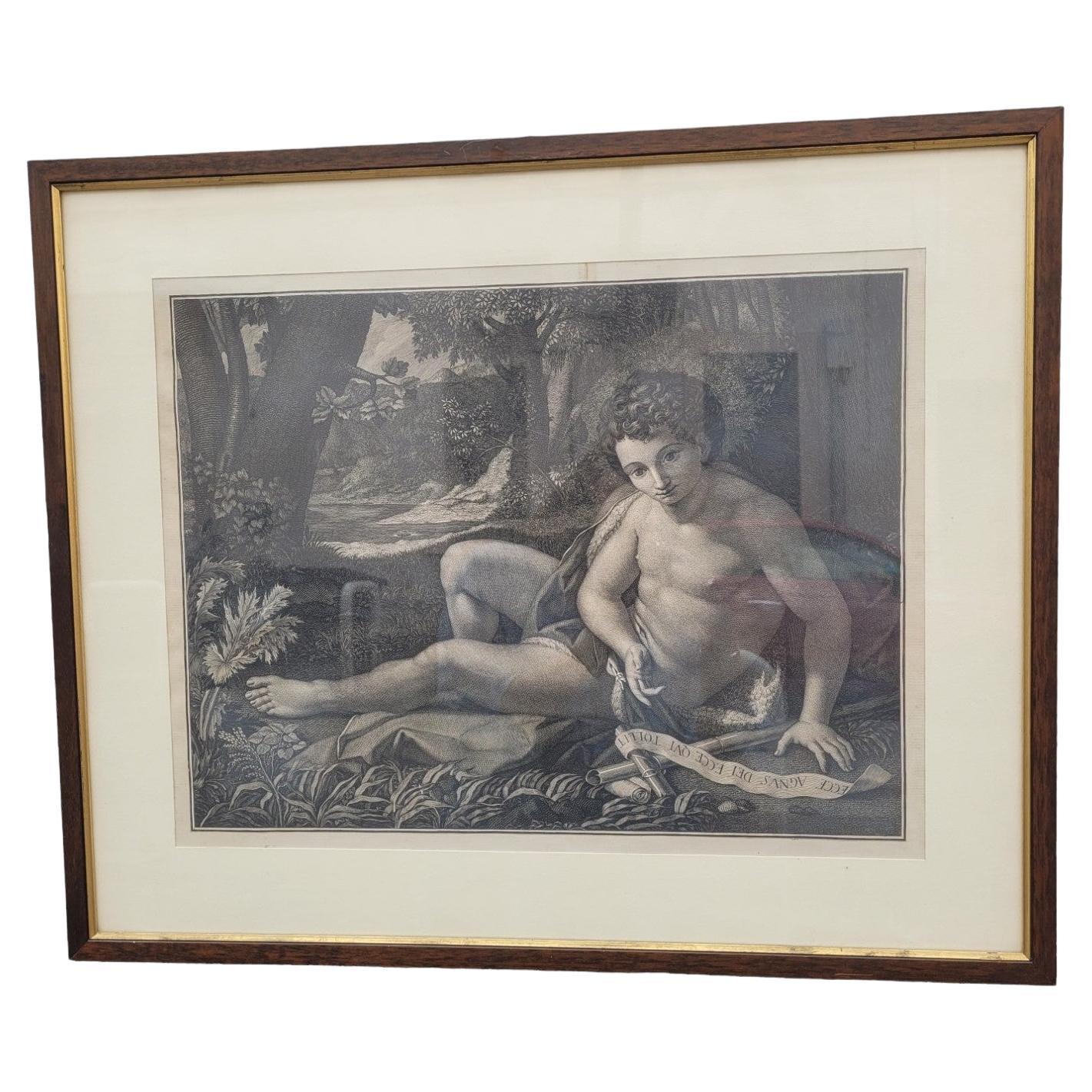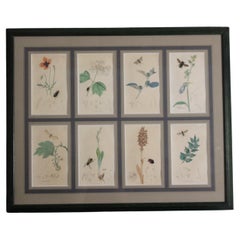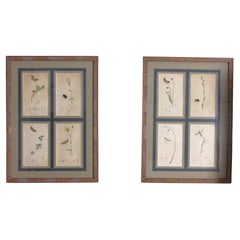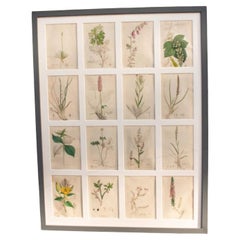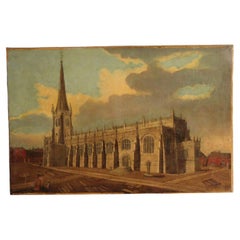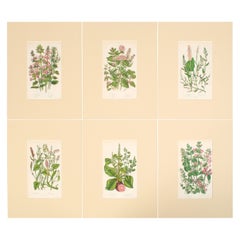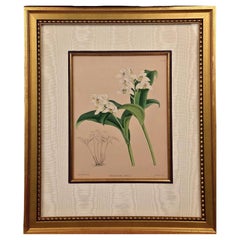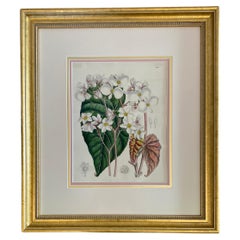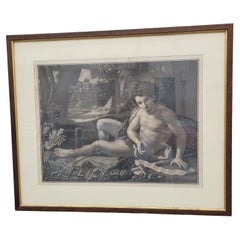Articles similaires à Botanical Engravings by John Curtis 19th century Set of 8
Vous voulez plus d'images ou de vidéos ?
Demander au vendeur plus d'images ou de vidéos
1 sur 14
Botanical Engravings by John Curtis 19th century Set of 8
À propos de cet article
19th Century Botanical Engravings: A Timeless Art Form
The Legacy of John Curtis and 19th-Century Botanical Engravings
🖋 Provenance Story – 19th Century Botanical Engravings with Insects, after John Curtis
These prints came from one of those treasure-hunt mornings — a private viewing at a longstanding dealer’s flat in Bloomsbury, stacked wall-to-wall with portfolios. In the corner, bound in archival sleeves and nearly forgotten, was a near-complete set of 19th-century botanical engravings — not just florals, but exquisite examples with entomological studies woven in: beetles nestled into petals, butterflies brushing pollen from stamens. Scientific. Romantic. Utterly mesmerising.
At the bottom of several plates was the unmistakable signature: J. Curtis. John Curtis, the renowned illustrator behind the Botanical Magazine, is a name synonymous with Victorian natural history and fine draftsmanship. His engravings — hand-coloured, scientifically meticulous — were once published to accompany botanical texts but quickly became collectable in their own right. These weren’t just records. They were declarations of awe for the natural world.
What made these particular pieces stand out was the inclusion of insects. It elevates each work, not just a study of flora, but an entire micro-ecosystem. Delicate, deeply observational, and full of movement. Each one feels like a moment captured rather than a specimen studied.
We’ve conserved them simply: mounted in minimalist, modern frames that allow the engraving to breathe — to be art, not just an archival reference. And they work anywhere. In modernist lofts, soft-toned bathrooms, layered gallery walls, or home offices that crave calm.
These are more than decorative prints. They’re time capsules of Victorian wonder — scientific elegance framed for the 21st century. For the collector, the design-lover, the nature devotee — they offer a way to anchor a space in natural history, in art, in quiet beauty.
John Curtis (1791-1862) is celebrated for his contributions to botanical art, particularly his work with 19th-century botanical engravings. In 1818, he became the principal artist of the Botanical Magazine, a prestigious publication of the era. Curtis’s detailed engravings often included both plants and insects, combining scientific accuracy with artistic beauty. His work stands as a testament to the skill and dedication required to produce these intricate illustrations.
The Art and Science of Botanical Illustrations with Insects
19th-century botanical engravings featuring plants and insects are remarkable for their detailed and vibrant depictions of nature. These illustrations were primarily created as scientific references to accompany botanical texts, yet they quickly gained popularity as decorative art pieces. Artists like John Curtis used traditional methods such as watercolour, pen, and ink to meticulously render the fine details of leaves, flowers, stems, and insects.
The inclusion of insects in these engravings added another layer of complexity, showcasing the interactions between flora and fauna. Artists paid close attention to the unique shapes, structures, and colours of their subjects, creating works that are as scientifically valuable as they are artistically stunning. These engravings provide a window into the natural world of the 19th century and continue to be cherished for their historical significance and aesthetic appeal.
Decorative Elegance: Botanical Prints in Modern Interiors
19th-century botanical engravings have transcended their original scientific purpose to become a cherished element in interior design. These timeless pieces seamlessly bridge the gap between the historical and the contemporary, offering a touch of natural elegance to modern spaces.
Enhancing Interior Spaces
Incorporating 19th-century botanical engravings into a home creates a focal point that blends history and sophistication. Their intricate designs and soft colour palettes complement various interior styles, from minimalist to industrial chic. Whether displayed as standalone pieces or arranged in a gallery wall, these prints add texture, depth, and a sense of organic beauty to any room.
Versatility Across Styles
The versatility of botanical engravings makes them suitable for diverse interior aesthetics. For instance:
In modern farmhouse interiors, they harmonise with natural materials like wood and linen.
In monochromatic or minimalist settings, they introduce a pop of colour and vintage charm.
In industrial spaces, they provide a striking contrast to raw elements like metal and concrete.
Applications in Design
Botanical engravings can be integrated into interiors in various ways:
Framed prints as wall art.
Upholstery patterns or fabric accents.
Inspirations for wallpapers or murals.
Their adaptability makes them ideal for spaces such as living rooms, kitchens, home offices, and even bathrooms, where they can bring life and character to the decor.
Timeless Appeal
Overall, 19th-century botanical engravings embody a unique blend of natural beauty, historical depth, and artistic elegance. Whether appreciated for their scientific roots or their decorative charm, these prints continue to inspire and elevate modern interiors, creating serene and inviting spaces that celebrate the harmony of art and nature.
Measurements
Width 77 cm
Height 66 cm
Condition
Very good, only very minimal age-related wear, as you would expect from the mid-19th century
Delivery
All our items will be packed with care to arrive safely to their new owners and are shipped with Track & Trace.
If you have any questions regarding an item or combined shipping, please feel free to ask.
We are happy to help you!
We kindly ask you to provide us with your phone number and email when placing your order. This will help the logistics services to locate you and give an estimated time of arrival.
We would also be delighted if you wished to make your own iries into shipping and would happily accommodate any courier of your choice.
Please note that delivery fees are based on front-door delivery. For an accurate delivery fee or any special requests or inquiries, please contact us. We look forward to hearing from you.
- Dimensions:Hauteur : 66 cm (25,99 po)Largeur : 77 cm (30,32 po)Profondeur : 5 cm (1,97 po)
- Vendu en tant que:Lot de 8
- Style:Victorien (De la période)
- Matériaux et techniques:Papier,Gravé
- Lieu d'origine:
- Période:
- Date de fabrication:1818
- État:Décoloration mineure.
- Adresse du vendeur:Seaford, GB
- Numéro de référence:1stDibs : LU10376245217022
À propos du vendeur
Nouveau sur 1stDibs
Inscrit au cours des six derniers mois.
Aucune évaluation pour le moment
Vendeur professionnel agréé
Chaque vendeur répond à des normes strictes en matière d'authenticité et de fiabilité
Établi en 2021
Vendeur 1stDibs depuis 2025
Temps de réponse habituel : 3 heures
- ExpéditionRecherche du devis...Expédition depuis : Seaford, Royaume-Uni
- Politique des retours
Certaines parties de cette page ont été traduites automatiquement. 1stDibs ne garantit pas l'exactitude des traductions. L'anglais est la langue par défaut de ce site web.
Garantie d'authenticité
Bien qu'il soit peu probable que la situation se présente, dans le cas où vous rencontreriez un problème d'authenticité d'un article, contactez-nous dans un délai d'un an pour obtenir un remboursement intégral. DétailsGarantie de remboursement
Si votre article n'est pas conforme à la description, est endommagé pendant le transport ou ne vous est pas livré, contactez-nous sous 7 jours pour obtenir un remboursement intégral. DétailsAnnulation sous 24 heures
Vous disposez d'un délai de 24 heures pour annuler votre achat sans motif.Des vendeurs professionnels agréés
Nos vendeurs de renommée mondiale doivent respecter des normes strictes en matière de service et de qualité, afin de préserver l'intégrité de nos fiches produit.Garantie d'alignement des prix
Si vous constatez qu'un autre vendeur a mis en vente le même article à un prix inférieur sur un autre site, nous nous alignerons sur ce prix.Livraison en toute confiance à l'international
Notre réseau de transporteurs de premier ordre propose des options d'expédition spécialisées dans le monde entier, y compris des livraisons personnalisées.Plus d'articles de ce vendeur
Tout afficherBotanical Engravings by John Curtis 19th century
19th Century Botanical Engravings: A Timeless Art Form
The Legacy of John Curtis and 19th-Century Botanical Engravings
🖋 Provenance Story – 19th Century Botanical Engravings with ...
Catégorie
Antiquités, XIXe siècle, Britannique, Victorien, Estampes
Matériaux
Papier
2 267 $US / ensemble
Gravures botaniques du 19e siècle
Paire de botaniques britanniques du XIXe siècle Gravures d'insectes - John Curtis (1791-1862)
Vendu par paire - Veuillez nous indiquer votre choix sur votre bon de commande :
1 - P...
Catégorie
Antiquités, XIXe siècle, Anglais, Victorien, Estampes
Matériaux
Papier
2 541 $US / ensemble
Gravures botaniques du 18e siècle de James Sowerby
Par James Sowerby
Rares estampes botaniques anciennes de James Sowerby (1757-1822) : Un hommage intemporel à la flore britannique
Entrez dans le monde enchanteur de l'art botanique du XVIIIe siècle g...
Catégorie
Antiquités, années 1790, Britannique, Georgien, Estampes
Matériaux
Papier
3 572 $US / ensemble
Peinture à l'huile du début du XIXe siècle représentant la cathédrale de Wakefield, Yorkshire -John Cawthorn
Peinture à l'huile du début du 19e siècle représentant la cathédrale de Wakefield, Yorkshire - Attribuée à John Cawthorn
Huile sur toile Attribué à John Cawthorn (britannique, actif...
Catégorie
Antiquités, Début des années 1800, Anglais, George III, Peintures
Matériaux
Toile
Peinture de chevaux du 19e siècle
Par Rosa Bonheur
Un rare ouvrage du 19e siècle peinture de la foire aux chevaux au Grassmarket, Édimbourg, Écosse
Suivante de Rosa Bonheur, huile sur toile
sceaux de cire de collection indistincts a...
Catégorie
Antiquités, années 1860, Britannique, Apogée victorien, Peintures
Matériaux
Toile
10 305 $US
Forge danoise du 19e siècle par Edvard Petersen
Intérieur de forge atmosphérique d'Edvard Petersen signé par un monogramme
Cette magnifique peinture de la fin du XIXe siècle représentant l'intérieur d'une forge est l'œuvre du cél...
Catégorie
Antiquités, années 1890, Danois, Apogée victorien, Peintures
Matériaux
Toile, Peinture
Suggestions
Ensemble de six gravures botaniques anglaises du 19ème siècle, Angleterre, vers 1880
Un ensemble de six gravures botaniques anglaises du 19ème siècle, Angleterre C.1880.
Monté, prêt à être encadré.
Beaux exemples, en excellent état proportionnel à l'âge.
Catégorie
Antiquités, Fin du XIXe siècle, Anglais, Victorien, Estampes
Matériaux
Papier
Orchidées d'abondance de John Nugent Fitch, encadrée , gravure botanique colorée à la main du 19ème siècle
Par John Nugent Fitch
Cette magnifique lithographie originale d'orchidée coloriée à la main intitulée "Trichosma Suavis" Orchids by John Nugent Fitch est la planche 114 de la publication de Robert Warner ...
Catégorie
Antiquités, Fin du XIXe siècle, Britannique, Victorien, Art décoratif
Matériaux
Bois doré, Papier
Orchidées d'abondance de John Nugent Fitch, gravure colorée à la main au 19e siècle, impression botanique
Par John Nugent Fitch
Cette magnifique lithographie originale d'orchidées "Begonia Scharffii" par John Nugent Fitch, coloriée à la main, porte le numéro de planche 7028 de la publication de Robert Warner ...
Catégorie
Antiquités, Milieu du XIXe siècle, Britannique, Victorien, Estampes
Matériaux
Bois, Papier
John The Baptist, Gravure encadrée, 19e siècle
Jean Baptiste, gravure encadrée représentant Jean en jeune berger vêtu d'une mélote, assis à côté de son bâton cruciforme en roseau et de la banderole "Ecce agnus dei ecce qui tollit...
Catégorie
Antiquités, XIXe siècle, Français, Empire, Estampes
Matériaux
Papier
Ensemble de huit gravures de mouettes du 19e siècle par John Gould
Par John Gould and Henry Constantine Richter
Un ensemble de huit lithographies colorées à la main du XIXe siècle, d'une qualité exceptionnelle, dans de beaux cadres en noyer du début du XXe siècle.
D'après John Gould (1804-1...
Catégorie
Antiquités, XIXe siècle, Anglais, Victorien, Estampes
Matériaux
Papier, Noyer
17 175 $US / ensemble
Gravure anglaise du 19e siècle par John Jones
Gravure anglaise du 19e siècle par John Jones. Le portrait de James Fose d'après Sir Joshua Reynolds, 1792.
Catégorie
Antiquités, années 1790, Français, Louis XV, Estampes
Matériaux
Papier
